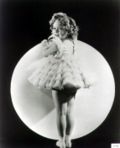Pages 457-468
This page-by-page annotation is organized by sections, as delineated by the seven squares (sprockets) which separate each section. The page numbers for this page-by-page annotation are for the original Viking edition (760 pages). Editions by other publishers vary in pagination — the newer Penguin editions are 776 pages; the Bantam edition is 886 pages.
Contributors: Please use a 760-page edition (either the original Viking edition with the orange cover or the Penguin USA edition with the blue cover and rocket diagram — there are plenty on Ebay for around $10) or search the Google edition for the correct page number. Readers: To calculate the Bantam edition use this formula: Bantam page # x 1.165. Before p.50 it's about a page earlier; as you get later in the book, add a page.
Finally, profound thanks to Prof. Don Larsson for providing the foundation for this page-by-page annotation.
Page 457
457.30 Bad Karma
Bad is German for spa or sanitarium and is often used in the names of towns with hot springs; obviously, this one is fictional and a pun
Page 465
465.27-28 so enfeebled by Gesellschaft and our obligation to its celebrated 'Contract', which never did exist
An allusion to Rousseau's theory of 'contrat social'.
Page 466
466.06 young Shirley TempleCompare the following excerpt from a review of Temple's film Wee Willie Winkie written by the novelist Graham Greene, who was then reviewing films for the British magazine Night & Day:
- "Miss Shirley Temple's case, though, has peculiar interest: infancy is her disguise, her appeal is more secret and more adult. Already two years ago she was a fancy little piece (real childhood, I think, went out with 'The Littlest Rebel'). In 'Captain January' she wore trousers with the mature suggestiveness of a Dietrich: her neat and well-developed rump twisted in the tap-dance: her eyes had a sidelong searching coquetry. Now in 'Wee Willie Winkie', wearing short kilts, she is completely totsy. Watch her swaggering stride across the Indian barrack-square: hear the gasp of excited expectation from her antique audience when the sergeant's palm is raised: watch the way she measures a man with agile studio eyes, with dimpled depravity. Adult emotions of love and grief glissade across the mask of childhood, a childhood skin-deep. It is clever, but it cannot last. Her admirers — middle-aged men and clergymen — respond to her dubious coquetry, to the sight of her well-shaped and desirable little body, packed with enormous vitality, only because the safety curtain of story and dialogue drops between their intelligence and their desire."
Greene and the magazine were consequently sued by Twentieth-Century Fox, bankrupting Night & Day and forcing Greene to hide out in Mexico where he drew the inspiration for his novel The Power and the Glory. (Ironically, both Wee Willie Winkie and The Fugitive, an adaptation of The Power and The Glory starring Henry Fonda, were directed by John Ford.)
| 1 Beyond the Zero |
3-7, 7-16, 17-19, 20-29, 29-37, 37-42, 42-47, 47-53, 53-60, 60-71, 71-72, 72-83, 83-92, 92-113, 114-120, 120-136, 136-144, 145-154, 154-167, 167-174, 174-177 |
|---|---|
| 2 Un Perm' au Casino Herman Goering |
181-189, 189-205, 205-226, 226-236, 236-244, 244-249, 249-269, 269-278 |
| 3 In the Zone |
279-295, 295-314, 314-329, 329-336, 336-359, 359-371, 371-383, 383-390, 390-392, 392-397, 397-433, 433-447, 448-456, 457-468, 468-472, 473-482, 482-488, 488-491, 492-505, 505-518, 518-525, 525-532, 532-536, 537-548, 549-557, 557-563, 563-566, 567-577, 577-580, 580-591, 591-610, 610-616 |
| 4 The Counterforce |
617-626, 626-640, 640-655, 656-663, 663-673, 674-700, 700-706, 706-717, 717-724, 724-733, 733-735, 735-760 |
